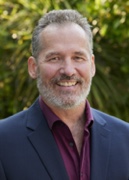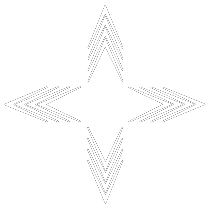NOTE: This call has already taken place – register below to receive the link to the recording of the call.
As a seeker, many things that come easily to other men may be more difficult for you. For some men, choosing a career or a spouse is straightforward, while for you these things are complex with far-reaching consequences. Men who are called to a deeper path have a greater need for meaning than others, and this complicates every aspect of your life.
Key to your ability to succeed in business, raise a family, or make a difference in the world is your relationship to power. Your relationship to your power and to yourself as a man colors everything you do. And since you are called to deeper self-awareness, that relationship is critically important, and almost certainly a complicated one.
Society has a love-hate relationship with masculine power. The role of a man in society used to be very well defined; now it is much less clear. While that provides more freedom, it also creates a lot of frustration and confusion, both collectively and individually.
On the one hand, men are still expected to be strong, competitive, self-reliant, economic breadwinners, providing for and protecting our families. On the other hand, men are often judged for those very same qualities.
Conservative media often promote a more traditional and rugged view of masculinity, glossing over its costs and limitations. The progressive left seems to have taken an anti-male (or at least anti-masculinity) stance, holding men implicitly responsible for all the ills of the world.
Like many men, you may find yourself struggling to deal with these confusing and contradictory expectations. Perhaps your leadership style isn’t welcomed as you feel it should be. You may have trouble finding the part of yourself that can manifest your goals, or the part of yourself that knows what your purpose and desires truly are. Even if you try to ignore the larger society confusion, it will still impact you at an unconscious level.
Join leadership experts Tim Kelley and Keith Merron for an inspiring and enlightening exploration into masculine power!
Monday, May 15th, 5pm PDT, 7pm Colombia, 8pm EDT, 12midnight GMT*, 8am (Tuesday) China, 9am (Tuesday) Japan, 10am (Tuesday) Sydney,
Call length: 90 minutes
*This GMT time does not take Daylight Saving Time into account. If your country is on Daylight Saving Time, add an hour.
In this interactive and informative online workshop, you will learn:
- How your relationship to power and to being a man can support or hinder your success in work and relationships
- Society’s evolving views on masculinity, and how they affect you unconsciously
- How your early programming limits your ability to express power effectively
- How you can transform your relationship to power and to being a man
Registrants will receive a recording after the call. Join us!
About the workshop leaders
 Tim Kelley is an international agent of change and the author of True Purpose. He works with top leaders in many fields to redesign and evolve society. Tim has trained over a thousand consultants, therapists and coaches in his methods. A graduate of MIT and a retired Navy commanding officer, he has worked with top leaders and executive teams from such companies as Alibaba, ING, Oracle, Nabisco and PricewaterhouseCoopers. Tim has also worked with government ministers and presidential candidates and found the higher purpose of two countries. Tim and his wife have a son and live in Berkeley, California.
Tim Kelley is an international agent of change and the author of True Purpose. He works with top leaders in many fields to redesign and evolve society. Tim has trained over a thousand consultants, therapists and coaches in his methods. A graduate of MIT and a retired Navy commanding officer, he has worked with top leaders and executive teams from such companies as Alibaba, ING, Oracle, Nabisco and PricewaterhouseCoopers. Tim has also worked with government ministers and presidential candidates and found the higher purpose of two countries. Tim and his wife have a son and live in Berkeley, California.
 Keith Merron is the founder and Managing Partner of Leadership Pathways, an organizational consulting and leadership development firm dedicated to helping organizations with bold visions achieve sustainable high performance. As an organization effectiveness and executive development consultant, he has over 30 years of experience assisting leaders in business, government, and education.
Keith Merron is the founder and Managing Partner of Leadership Pathways, an organizational consulting and leadership development firm dedicated to helping organizations with bold visions achieve sustainable high performance. As an organization effectiveness and executive development consultant, he has over 30 years of experience assisting leaders in business, government, and education.
Keith received his Doctorate from Harvard University in 1985, where his studies spanned the fields of human and organization development. He is the author of seven books on human and organizational change. Keith has two children and lives in San Rafael, California
